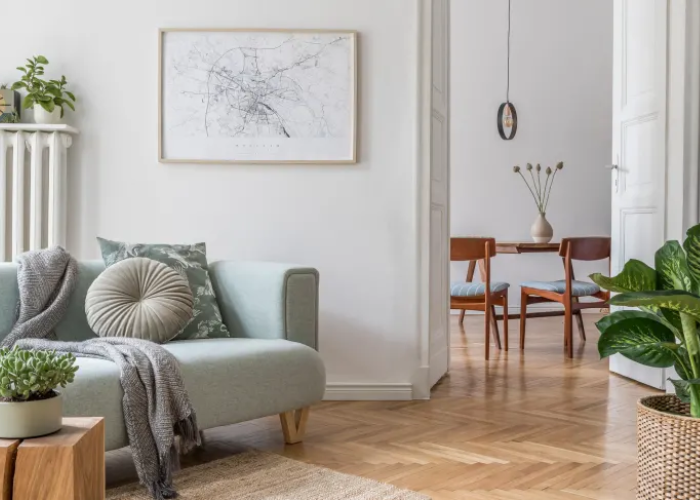In a world defined by consumerism, clutter, and constant busyness, the concept of minimalist living has emerged as a refreshing counterpoint. Minimalism is not just about decluttering your physical space; it’s a mindset, a way of life that prioritizes simplicity, intentionality, and fulfillment over material possessions. In this comprehensive guide, we will explore the philosophy of minimalism, its practical applications, and the profound benefits it can bring to your life.
Understanding Minimalism: A Philosophy for Modern Living
Minimalism is far more than just an interior design trend; it’s a philosophy rooted in the idea that less is more. It encourages individuals to pare down their possessions, simplify their lifestyles, and focus on what truly matters. At its core, minimalism is about intentionally choosing what adds value to your life and letting go of the excess.
The Origins of Minimalism
Minimalism finds its origins in various cultural and artistic movements throughout history. In art, it emerged in the early 20th century as a reaction against the ornate and overly decorative styles of the time. Artists like Piet Mondrian and Kazimir Malevich sought to reduce their creations to the most essential elements, emphasizing simplicity and abstraction.
In the 1960s, minimalism gained popularity as a design and architectural movement. Architects like Ludwig Mies van der Rohe championed the idea that “less is more” in their designs, focusing on clean lines, open spaces, and minimal ornamentation.
In recent years, minimalism has transcended art and design to become a guiding philosophy for life itself. It provides a compelling response to the overwhelming consumer culture that dominates modern society.
The Core Principles of Minimalism
- Intentionality: Minimalism encourages deliberate choices in all aspects of life. Whether it’s your possessions, relationships, or daily activities, minimalists seek to align their actions with their values and priorities.
- Simplicity: Minimalists prioritize simplicity in design, lifestyle, and thinking. This simplicity extends to decluttering physical spaces, simplifying daily routines, and reducing unnecessary commitments.
- Ownership of Possessions: Minimalists carefully curate their belongings, valuing quality over quantity. They focus on owning items that serve a purpose and bring genuine joy.
- Mindfulness: Minimalism promotes being present and fully engaged in the moment. It encourages people to appreciate the simple pleasures of life rather than constantly chasing more.
- Environmental Consciousness: Many minimalists adopt eco-friendly practices, as they tend to consume less and choose sustainable products, contributing to a greener, more sustainable planet.
The Practical Application of Minimalism
Minimalism is not a one-size-fits-all approach. It can be tailored to fit individual preferences and circumstances. Here are some practical ways to incorporate minimalism into your life:
Declutter Your Physical Space
Start with your physical environment. Take a critical look at your belongings and ask yourself whether each item serves a purpose or brings you joy. The KonMari method, popularized by Marie Kondo, suggests holding each item and deciding whether it “sparks joy.” If it doesn’t, consider letting it go through donation, recycling, or selling.
Streamline Your Wardrobe
Many people find their closets overflowing with clothes they rarely wear. A minimalist wardrobe consists of versatile, high-quality pieces that you genuinely love. Consider adopting a capsule wardrobe approach, where you have a limited number of clothing items that can be mixed and matched effortlessly.
Digital Minimalism
Minimalism extends beyond the physical realm into the digital world. Declutter your digital life by unsubscribing from unnecessary email lists, organizing your files and folders, and simplifying your online presence. Remove apps and digital distractions that don’t contribute positively to your life.
Simplify Your Finances
Minimalist living can also apply to your financial life. Review your expenses and identify areas where you can cut back on unnecessary spending. Creating a budget and prioritizing savings can lead to greater financial security and peace of mind.
Mindful Consumption
Practice mindful consumption by making thoughtful and intentional purchasing decisions. Before buying something, ask yourself whether it aligns with your values and whether you genuinely need it. Avoid impulsive shopping and focus on long-lasting, high-quality items.
Reduce Commitments
In our fast-paced world, we often overcommit ourselves, leading to stress and burnout. Minimalism encourages you to evaluate your commitments and prioritize those that align with your values and bring you fulfillment. Learn to say no to activities or responsibilities that drain your time and energy.
Digital Detox
Constant connectivity and information overload can be overwhelming. Consider taking regular breaks from screens and social media. Disconnecting from technology allows you to be present, reduces stress, and promotes mental clarity.
The Benefits of Minimalist Living
Embracing minimalism can bring a multitude of benefits to your life, both tangible and intangible. Here are some of the profound advantages of adopting a minimalist lifestyle:
Reduced Stress
Minimalism reduces the physical and mental clutter in your life. With fewer possessions to manage and fewer commitments to juggle, you’ll experience reduced stress and increased peace of mind. Your living space becomes a sanctuary of calm, promoting relaxation and mental clarity.
Increased Freedom
By owning fewer possessions and simplifying your lifestyle, you gain a sense of freedom. You’re not tied down by the burden of excessive stuff or a hectic schedule. This freedom allows you to pursue experiences, adventures, and personal growth.
Improved Relationships
Minimalism encourages you to focus on what truly matters in your relationships. By eliminating distractions and being present with loved ones, you can strengthen your connections and create deeper, more meaningful bonds.
Financial Stability
Simplifying your finances through minimalism can lead to improved financial stability. You’ll spend less on unnecessary purchases and prioritize saving and investing for your future.
Enhanced Creativity
A clutter-free environment fosters creativity. With fewer distractions, your mind is free to explore new ideas, think critically, and engage in creative pursuits.
Better Physical Health
A minimalist lifestyle often leads to a healthier way of living. You may find yourself cooking more nutritious meals at home, prioritizing exercise, and getting adequate rest, all of which contribute to improved physical well-being.
Reduced Environmental Impact
Minimalists tend to be more conscious of their environmental footprint. By consuming less and choosing sustainable products, you can reduce your impact on the planet and contribute to a healthier environment for future generations.
Overcoming Challenges on the Minimalist Journey
While the benefits of minimalist living are compelling, it’s essential to acknowledge that the journey toward minimalism can be challenging. Here are some common obstacles and strategies to overcome them:
Attachment to Possessions
Letting go of possessions, especially sentimental items, can be emotionally challenging. To overcome this, take it one step at a time. Start with less emotionally charged items and gradually work your way toward more sentimental ones. Consider taking photographs of items you want to remember but no longer need physically.
Peer Pressure
Society often encourages the accumulation of possessions as a measure of success. It’s essential to stay true to your values and not succumb to peer pressure. Surround yourself with like-minded individuals.


